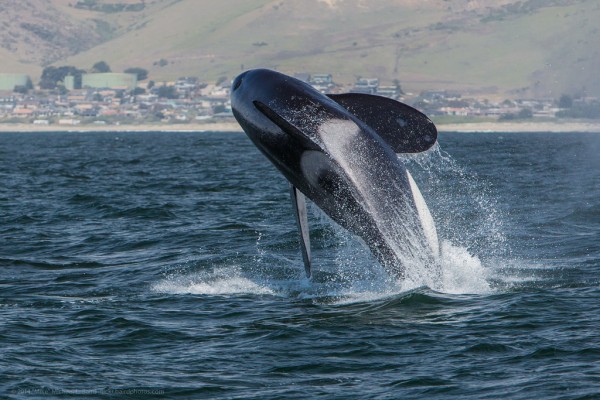By Dane Lorica, | January 15, 2017

Scientists have found a possible reason for why killer whales undergo menopause. (Mike Baird/CC BY 2.0)
Scientists have found a new possible explanation for the phenomena of menopause in Killer Whales.
Only three species have an end in their menstrual cycle: the short-finned pilot whales, humans, and killer whales. In the 2015 Killer Whale Menopause Study, it was suggested that the reason why the animal undergoes menopause is that they tend to focus more on the survival of their descendants rather than giving birth to more progenies.
Like Us on Facebook
Behavioral ecologist Darren Croft said "that showed how they helped and why they lived so longer after menopause, but it didn't explain why they stop reproducing."
However, a new study claims that older Orcinus orca have to go through the stage to avoid competing for resources with their daughters' calves.
An analysis of data gathered in a span of 43 years and involving two populations of the toothed whale species from the Pacific Northwest was conducted. Male and female calves stay with mother orcas while they mate with whales from another whale family. The average lifespan of males is 30 years while female orcas live longer but stop procreating by the age of 30 to 40. In fact, the studied populations had a "Granny" that recently died at the age of 105. This oldest orca stopped reproducing when she was around 40 years old but remained the family's leader.
The scientists said that competition over food is common among families. At some point in the mother whale's life, she and her daughters will give birth simultaneously. In the findings, it was revealed that in a span of 43 years, the mother gave birth to 525 offsprings, 161 were co-generation with 31 percent mortality. The scientists also found out that calves of older mothers are 1.7 times more likely to die.
One possible reason behind the mortality is that daughters and grand-calves compete for food supplied by the mother whale resulting in starvation. The authors said, "the fitness benefits of post-reproductive helping could in principle select for menopause, but the magnitude of these benefits appears insufficient to explain the timing of menopause."
The study published in Current Biology concluded that killer whales undergo menopause as a result of their family structure that is open to reproductive competition.
"It's a cool study because we usually think about these kinship issues in terms of helping behavior, not competition," Richard Connor from the University of Massachusetts said.
-
Use of Coronavirus Pandemic Drones Raises Privacy Concerns: Drones Spread Fear, Local Officials Say

-
Coronavirus Hampers The Delivery Of Lockheed Martin F-35 Stealth Fighters For 2020

-
Instagram Speeds Up Plans to Add Account Memorialization Feature Due to COVID-19 Deaths

-
NASA: Perseverance Plans to Bring 'Mars Rock' to Earth in 2031

-
600 Dead And 3,000 In The Hospital as Iranians Believed Drinking High-Concentrations of Alcohol Can Cure The Coronavirus

-
600 Dead And 3,000 In The Hospital as Iranians Believed Drinking High-Concentrations of Alcohol Can Cure The Coronavirus

-
COVID-19: Doctors, Nurses Use Virtual Reality to Learn New Skills in Treating Coronavirus Patients







